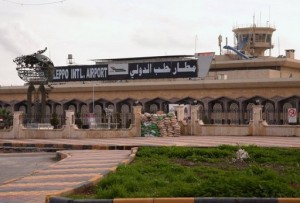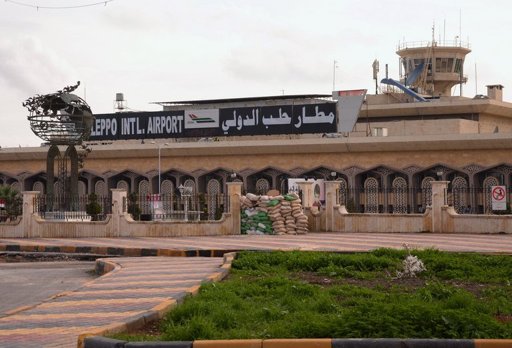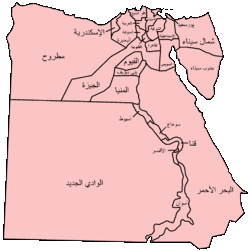
AFP – Furious combat raged around strategic airports in northern Syria on Thursday, the day after the United Nations gave a staggering toll of 60,000 dead in the country’s 21-month civil war.
Insurgents besieged troops on the perimeter of the international airport in Aleppo, the hard fought-over main city of Syria’s north, and a military airbase in Idlib province, the Syrian Observatory for Human Rights said.
Aleppo’s critical civilian transportation hub has been closed since Tuesday after repeated attacks by rebels, according to an airport official, who said it would reopen as soon as the army regained control of the surrounding areas.
Rebels holding much of the area surrounding Aleppo were targeted by regime shelling overnight in the city’s Sakhur district and in the towns of Marea and Aazaz farther north near the Turkish border.
Meanwhile, hundreds of fighters with two hardcore Islamist rebel groups, the Al-Nusra Front and Ahrar al-Sham, fought soldiers around the Taftanaz airbase in the northwest province of Idlib, the British-based Observatory said, adding that airstrikes were blasting rebel positions.
The rebels had remotely detonated a bomb at one of the airport’s gates the day before but were pushed back by the army, according to both the Observatory and a military source inside the base.
The military source told AFP that clashes outside the base had been non-stop for over 48 hours and there had been a large number of rebel casualties.
Three rebels were meanwhile killed in combat with troops around the Deir Ezzor military airport, as fighting also broke out in the nearby provincial capital in the east of the country.
Near Damascus, warplanes carried out air strikes and ground troops launched rockets on the southwest towns of Daraya and Moadamiyet al-Sham in fresh attempts to wrest back control.
In the town of Mleha, just east of Damascus, bodies were being recovered from a service station hit by a regime airstrike on Wednesday.
The toll from that attack was not yet known, but the Observatory said at least 12 bodies were recovered, several of them rebels. The Local Coordination Committees, a grassroots network of activists, estimated that at least 50 people were killed.
The Observatory said 219 people died on Wednesday nationwide: 115 civilians, 57 rebels and 47 soldiers.
— ‘Shocking’ death toll —
The overall death toll of the 21-month Syrian conflict has unsettled observers.
The UN High Commissioner for Human Rights Navi Pillay on Wednesday called it “truly shocking” as she revealed a vetted UN tally nearly a third higher than that previously compiled by the Syrian Observatory for Human Rights.
“The number of casualties is much higher than we expected, and is truly shocking,” she said in a statement.
“Given there has been no let-up in the conflict since the end of November, we can assume that more than 60,000 people have been killed by the beginning of 2013,” Pillay said.
The average number of deaths recorded in recent months was five times that registered mid-2011, reflecting intensifying viciousness and the regime use of airstrikes.
Pillay said in her statement that “this massive loss of life could have been avoided” if the Syrian government of President Bashar al-Assad had not chosen the “ruthless suppression” of what initially were peaceful protests.
Assad is resisting pressure from the rebels and from much of the international community to step down.
Karim Bitar, an analyst at the Paris-based Institute for International and Strategic Relations, was sceptical the new UN toll would have a political impact.
“The world has become unfortunately so toughened to these figures, sort of anaesthetised. There is this terrible Stalin quote: ‘One death is a tragedy; one million is a statistic’,” Bitar said.
Russia and China have so far vetoed three UN Security Council draft resolutions seeking to force Assad’s hand with the threat of sanctions.
UN-Arab League peace envoy Lakhdar Brahimi warned at the weekend that the Syrian civil war was worsening “by the day” and said that Damascus faced a choice between “hell or the political process.”


